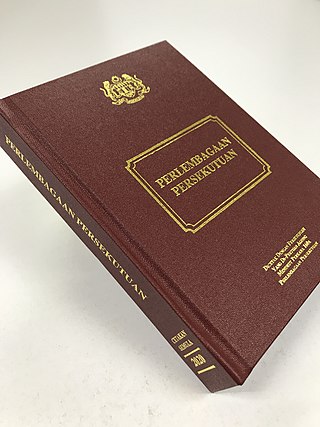
The Controlled Substances Act (CSA) is the statute establishing federal U.S. drug policy under which the manufacture, importation, possession, use, and distribution of certain substances is regulated. It was passed by the 91st United States Congress as Title II of the Comprehensive Drug Abuse Prevention and Control Act of 1970 and signed into law by President Richard Nixon. The Act also served as the national implementing legislation for the Single Convention on Narcotic Drugs.

A medical license is an occupational license that permits a person to legally practice medicine. In most countries, a person must have a medical license bestowed either by a specified government-approved professional association or a government agency before they can practice medicine. Licenses are not granted automatically to all people with medical degrees. A medical school graduate must receive a license to practice medicine to legally be called a physician. The process typically requires testing by a medical board. The medical license is the documentation of authority to practice medicine within a certain locality. An active license is also required to practice medicine as an assistant physician, a physician assistant or a clinical officer in jurisdictions with authorizing legislation.

The Federal Constitution of Malaysia, which came into force in 1957 as the Constitution of the Federation of Malaya and was amended in 1963 to form the Constitution of Malaysia, is the supreme law of Malaysia and contains a total of 183 articles. It is a written legal document influenced by two previous documents, the Federation of Malaya Agreement 1948 and the Independence Constitution of 1957. The Federation was initially called the Federation of Malaya and it adopted its present name, Malaysia, when the states of Sabah, Sarawak and Singapore became part of the Federation. The Constitution establishes the Federation as a constitutional monarchy, having the Yang di-Pertuan Agong as the Head of State with largely ceremonial roles. It provides for the establishment and organisation of three main branches of the government: the bicameral legislative branch called the Parliament, which consists of the House of Representatives and the Senate ; the executive branch led by the Prime Minister and his Cabinet Ministers and the judicial branch headed by the Federal Court.

The Architects Registration Board (ARB) is the statutory body for the registration of architects in the United Kingdom. It operates under the Architects Act 1997 as amended, a consolidating Act. It began under the Architects (Registration) Act 1931 which gave it the name the Architects' Registration Council of the United Kingdom (ARCUK). It prescribes architectural qualifications, maintains the Register of Architects, issues a code of professional conduct and competence and imposes sanctions if a finding of unacceptable professional conduct or serious professional incompetence is made against an architect. Its main source of income is fees payable under Part II of the Act by persons on their becoming registered or for their retention on the Register. The board is required to pay into the Consolidated Fund of the United Kingdom any sum paid under a penalty order which its Professional Conduct Committee has made under Part III of the Act. Fines imposed by a magistrates' court under Part IV of the Act are not payable to the board.
The Constitution of the Republic of Singapore is the supreme law of Singapore. A written constitution, the text which took effect on 9 August 1965 is derived from the Constitution of the State of Singapore 1963, provisions of the Federal Constitution of Malaysia made applicable to Singapore by the Republic of Singapore Independence Act 1965, and the Republic of Singapore Independence Act itself. The text of the Constitution is one of the legally binding sources of constitutional law in Singapore, the others being judicial interpretations of the Constitution, and certain other statutes. Non-binding sources are influences on constitutional law such as soft law, constitutional conventions, and public international law.

The Controlled Substances Penalties Amendments Act of 1984, 98 Stat. 2068, generally enhanced the penalties for violations of the Comprehensive Drug Abuse Prevention and Control Act of 1970. The 1984 legislation removed an ambiguity in the then-existing law by providing that a State drug felony conviction would trigger the provisions enhancing penalties for recidivists; it went further by providing that a Foreign drug felony conviction would have the same effect. Finally, the 1984 legislation doubled the penalties for distribution of controlled substances where the offense is committed on or within 1,000 feet of school property.
The Attorney General is the top prosecutorial official in Poland. The Office of the Public Prosecutor General's office has authority over the National Public Prosecutor, public prosecutors of universal prosecutorial bodies, regional prosecutorial bodies and various specific prosecutorial commissions. Apart from a brief period between 2010 and 2016, the position of Public Prosecutor General has been held concurrently by the Minister of Justice. Adam Bodnar is the current Public Prosecutor General of Poland.

The Architects Act 1997 is the consolidating Act of the Parliament of the United Kingdom for the keeping and publishing of the statutory Register of Architects by the Architects Registration Board. It has the long title: An Act to consolidate the enactments relating to architects. It consolidated two Acts of the 1930s as later amended both by primary legislation and by Orders in Council implementing the EC directive on architects providing for the recognition of architects qualified in other EC states, and the changes which had been made by Part III of the Housing Grants, Construction and Regeneration Act 1996.
Amending the Constitution of India is the process of making changes to the nation's fundamental law or supreme law. The procedure of amendment in the constitution is laid down in Part XX of the Constitution of India. This procedure ensures the sanctity of the Constitution of India and keeps a check on arbitrary power of the Parliament of India.

Teo Soh Lung v Minister for Home Affairs is the name of two cases of the Singapore courts, a High Court decision delivered in 1989 and the 1990 judgment in the appeal from that decision to the Court of Appeal. The cases were concerned with the constitutionality of amendments made to the Constitution of the Republic of Singapore and the Internal Security Act ("ISA") in 1989. The latter statute authorizes detention without trial on security grounds. These amendments had the effect of changing the law on judicial review of executive discretion under the ISA by re-establishing the subjective test enunciated in the 1971 High Court decision Lee Mau Seng v Minister for Home Affairs which had been overruled in 1988 by Chng Suan Tze v Minister for Home Affairs, and limiting the right of judicial review to ensuring compliance with procedures specified in the ISA. In other words, the amendments were intended to render the exercise of power by the President and the Minister for Home Affairs under the ISA to detain persons without trial not justiciable by the courts. Both the High Court and Court of Appeal found that these amendments were constitutional because Parliament had done nothing more than enact the rule of law relating to the law applicable to judicial review. Thus, the amendments validly operated to deprive the applicant Teo Soh Lung of the ability to apply to the courts for judicial review.

The Medical Act 1983 is an Act of the Parliament of the United Kingdom which governs the regulation and credentials of the medical profession, and defines offences in respect of false claims of fitness to practise medicine.

The Malaysia Bill is an annex of the Agreement relating to Malaysia between United Kingdom of Great Britain and Northern Ireland, Federation of Malaya, North Borneo, Sarawak and Singapore. It gave effect to the Agreement where that the British colonies of North Borneo, Sarawak and the State of Singapore should be federated with the existing States of the Federation of Malaya and the name of the federation should be Malaysia, and the Federal constitution wherewith to amend and adopt the Constitution of the Federation of Malaya so as to provide for the admission of those States. it adopted its present name, the name of the Constitution of the Federation of Malaya should be changed into Constitution of Malaysia.
The Concurrent List or List-III is a list of 52 items given in the Seventh Schedule to the Constitution of India. It includes the power to be considered by both the union and state government. The legislative section is divided into three lists: Union List, State List and Concurrent List. Unlike the federal governments of the United States, Switzerland or Australia, residual powers remain with the Union Government, as with the Canadian federal government.
The Criminal Justice Act 1953, previously called the Criminal Justice Ordinance 1953, is a Malaysian law which enacted relating to penal servitude, methods of imprisonment and whipping; and for purposes connected therewith.

The Communications and Multimedia Act 1998 is an Act of the Parliament of Malaysia. It was enacted to provide for and to regulate the converging communications and multimedia industries, and for incidental matters.

The Road Transport Act 1987 is an Act of the Parliament of Malaysia. It was enacted to make provision for the regulation of motor vehicles and of traffic on roads and other matters with respect to roads and vehicles thereon; to make provision for the protection of third parties against risks arising out of the use of motor vehicles; to make provision for the co-ordination and control of means of and facilities for transport; to make provision for the co-ordination and control of means of and facilities for construction and adaptation of motor vehicles; and to make provision for connected purposes.

The Armed Forces Act 1972 [Act 77), is a Malaysian laws which enacted to amend and consolidate the law relating to the establishment, government and discipline of the armed forces of Malaysia.

The Arbitration Act 2005 is a Malaysian law that was enacted to reform the law relating to domestic arbitration, provide for international arbitration, recognize and enforce awards, and deal with related matters.

The Excise Act 1976, is an Act of the Parliament of Malaysia. It was enacted to amend and consolidate the law pertaining to excise in Malaysia.









